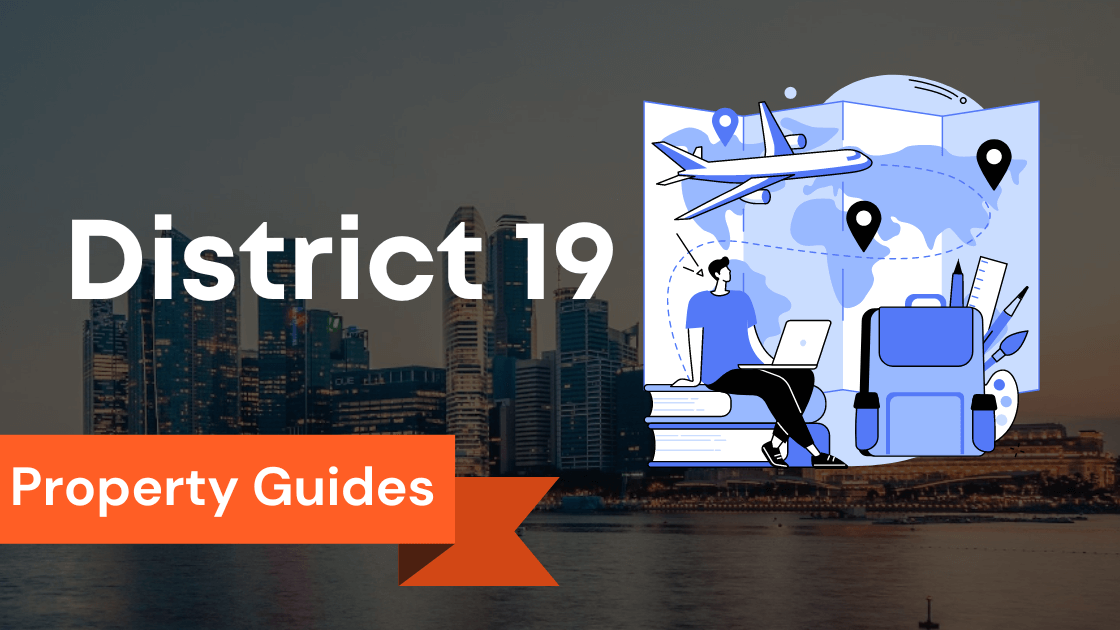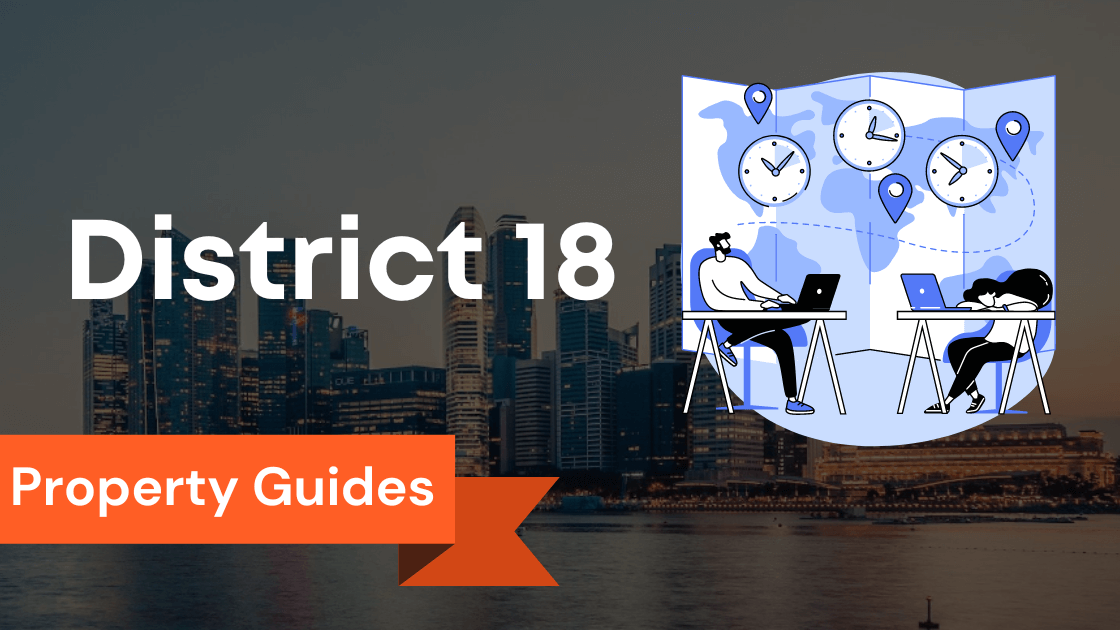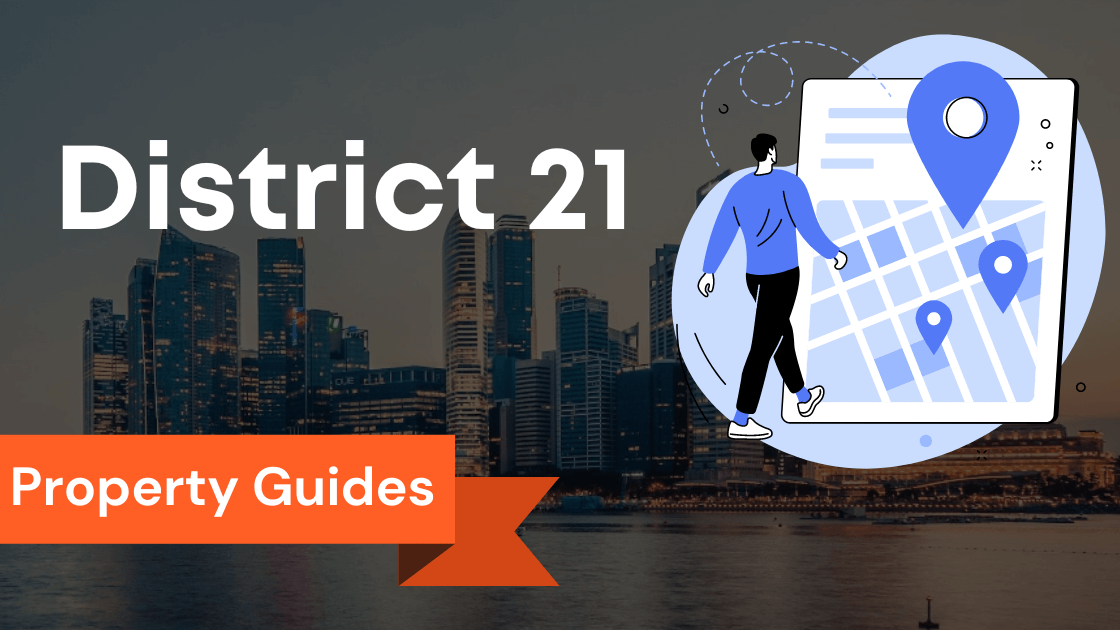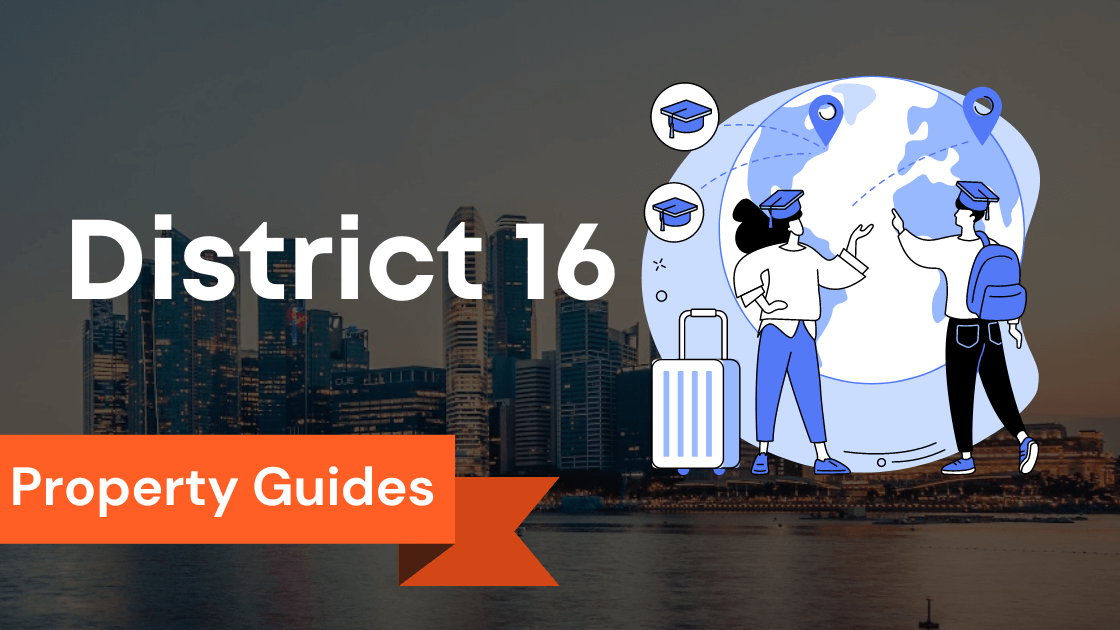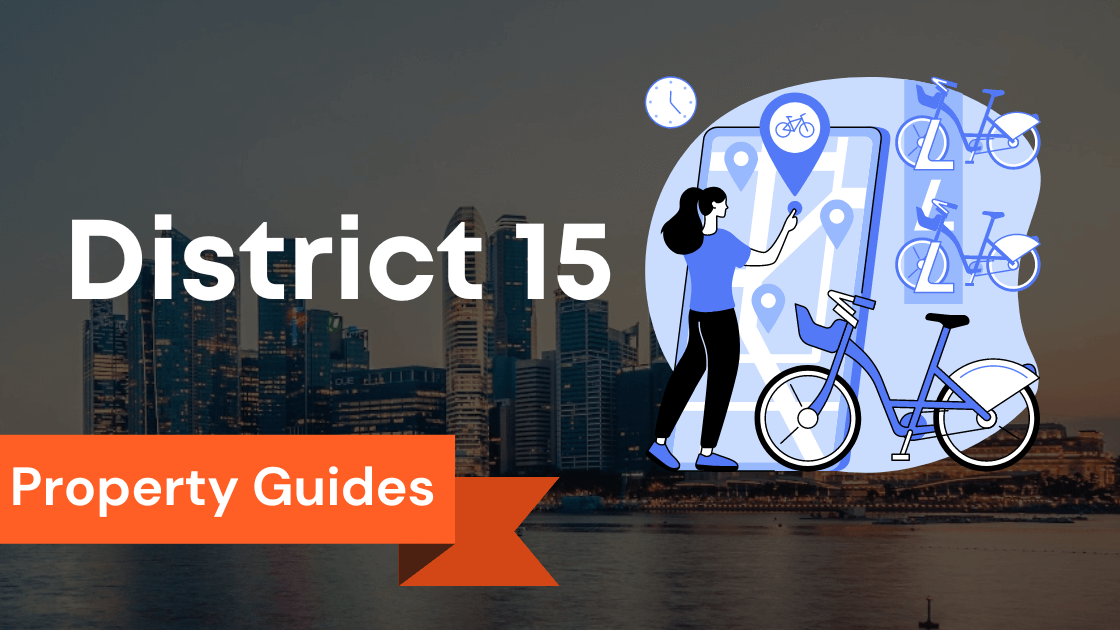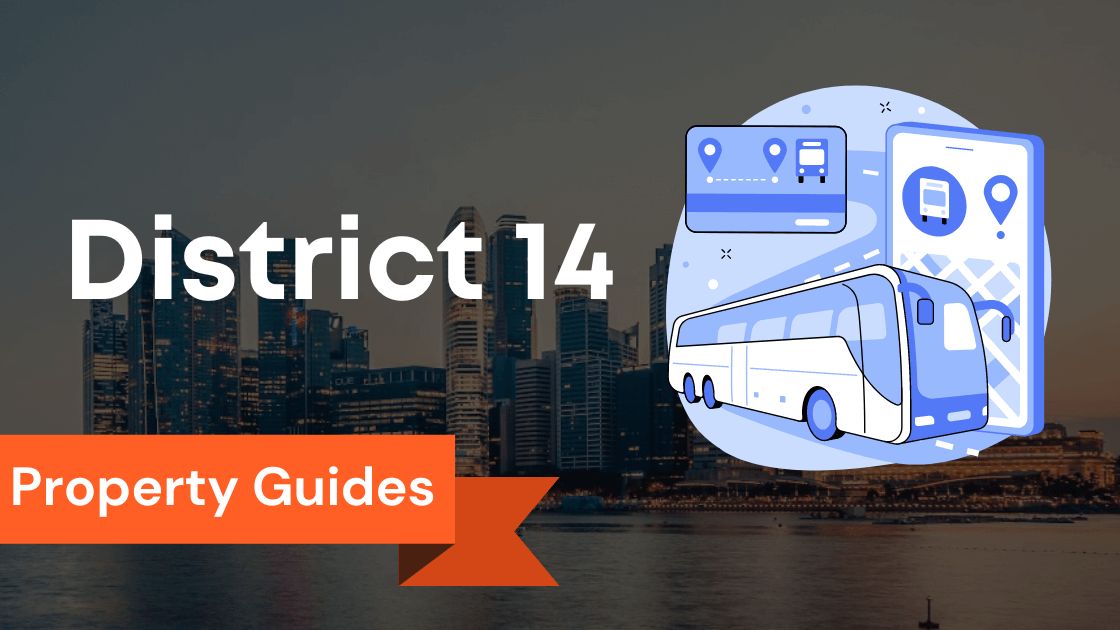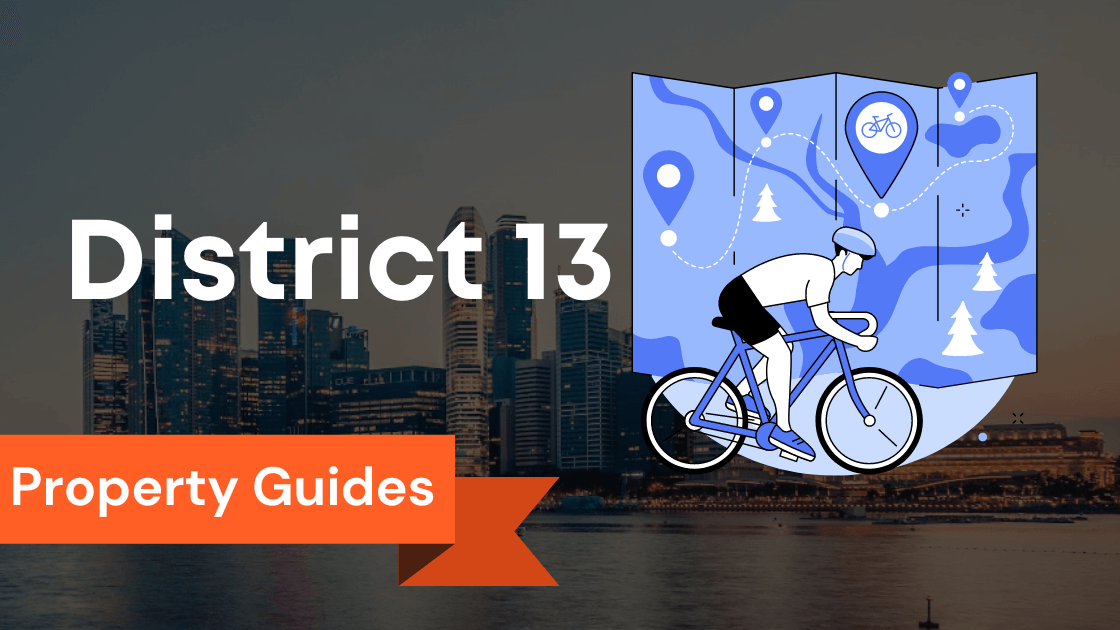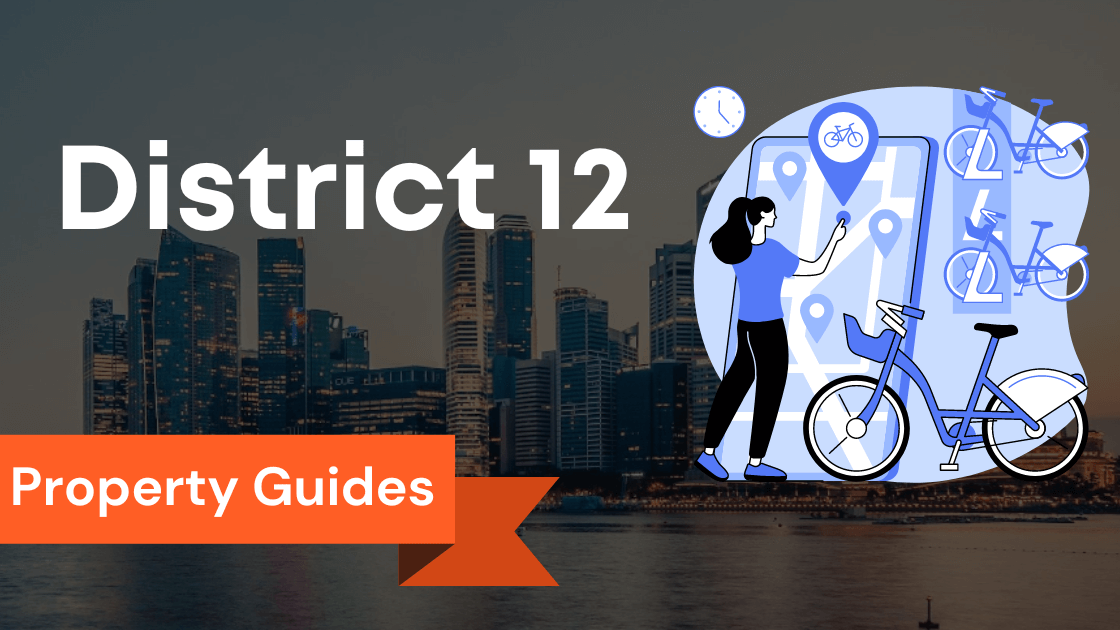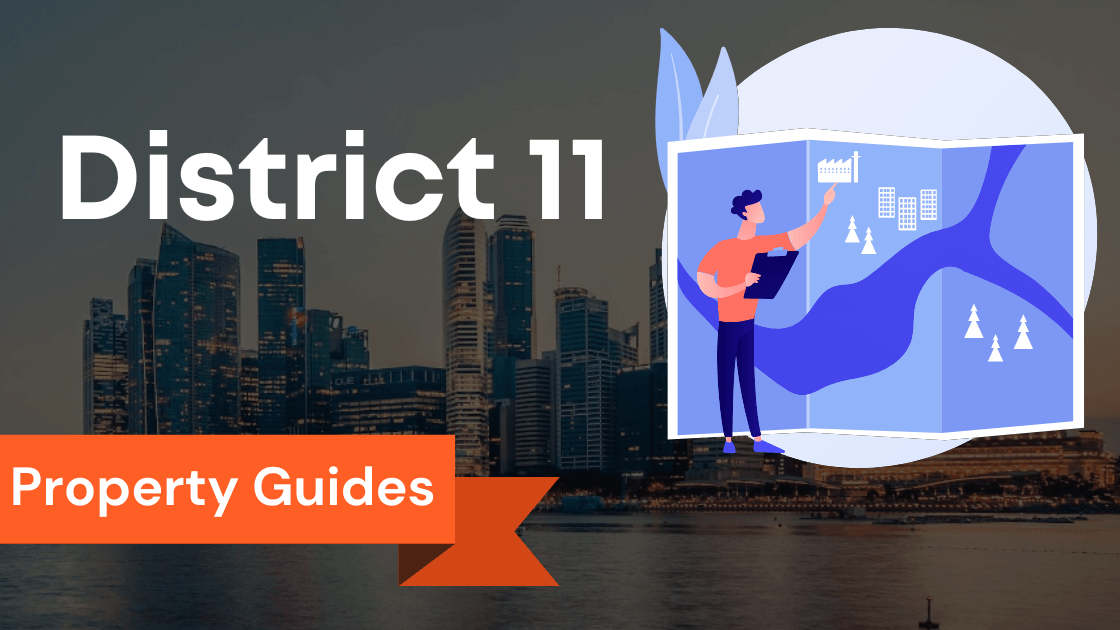Discover District 19 Singapore Condos in Hougang, Punggol, and Sengkang | Your Guide to D19 Singapore Property in Serangoon Garden
Introduction to District 19 Singapore District 19 Singapore is a vibrant and highly sought-after...
Explore District 18 Singapore Property for Sale: Pasir Ris, Tampines Condos at the Best Price – Research and Square Footage
Introduction to District 18 Singapore Situated in the eastern part of Singapore, District 18 is a...
Explore District 17 Singapore Property: Changi Airport Condos for Sale in Changi Village | Find Top Property Listings and Prices
Introduction to District 17 Singapore District 17 Singapore, located in the eastern part of the...
Explore District 23 Singapore: Bukit Batok, Choa Chu Kang, Bukit Panjang, and Dairy Farm | Landed Property and Condos for Sale in D23 | Condo Directory
Discover District 23 Singapore – a vibrant, diverse oasis in the west. Bukit Batok, Bukit Panjang,...
Sale in District 22: Exploring Jurong and Tuas, Boon Lay, Condo Directory, and Condos for Sale in Singapore
Explore the vibrant tapestry of District 22 Singapore, a captivating fusion of residential,...
Discovering the Charm of District 21 in Singapore: A Comprehensive Neighbourhood District Guide in Upper Bukit Timah and Clementi
Step into the enchanting world of District 21 Singapore, where vibrant urban living meets the...
House and Condo for Rent and Sale in District 16 Singapore – Find Your Ideal Property in Bedok and Upper East Coast | Price and Rental
Overview of District 16 Singapore and its popular neighborhoods District 16 Singapore, located in...
Explore District 15 Singapore: Find East Coast Condos and Properties for Sale in Marine Parade | Condo Sale in District 15
District 15 in Singapore is a highly sought-after residential area on the island's eastern coast....
Discover the Charm of District 14 Singapore: Paya Lebar, Geylang, Eunos Condos and More in the Vibrant Condo Directory
Situated in the heart of Singapore, District 14 is a vibrant and bustling area that offers a...
District 13 Singapore: Explore Property Rentals, Condos, and Apartments in the Area for Optimal Gain in Price Trends
District 13 Singapore is a vibrant and bustling area located in the eastern part of the country....
Comprehensive Guide to District 12 Properties: Find Apartments and Condos for Sale in Thomson, Novena, and Toa Payoh Singapore
Discover District 12 Singapore, where vibrant urban living meets convenience. From historical...
Unveiling the District 11 Singapore Property Landscape: Exploring Price Trends, Capital Gain, Apartment, Condos and Rental Yields
Welcome to District 11 Singapore, a captivating blend of urban vibrancy and serene living. Its...

Embark on a journey through the intricate world of legal matters—a realm where laws weave the fabric of our society.
From contracts shaping deals to environmental concerns molding our planet’s future, legal issues influence every facet of life.
In the realm of business, legal matters stand as sentinels of integrity.
They guide enterprises through regulations, protecting reputations and financial stability.
Key Takeaways
- Legal Matters Definition: Legal matters encompass issues involving the law and legal systems, ranging from contracts to environmental concerns. Engaging in activities with legal implications subjects individuals to legal matters, necessitating adherence to laws and dispute resolution.
- Business Success and Legal Matters: Legal management is vital for business success, ensuring adherence to laws, mitigating risks, and safeguarding reputation and finances. Compliance with legal regulations and protection of intellectual property rights are crucial.
- Legal Issues for Entrepreneurs: Entrepreneurs should be aware of legal challenges such as business, employment, real estate, corporate, litigation, and contractual law. Staying informed helps make informed decisions and seek legal advice when needed.
- Document Management Best Practices: Properly organizing and securing legal documents using categorization, version control, and software ensures easy access and retrieval, reducing loss or misplacement risks.
- Tools for Legal Management: Legal research, contract management, case management, and legal document repositories are essential tools for efficient legal management, streamlining processes and enhancing collaboration.
- Legal Consultations for Disputes: Legal consultations with attorneys are crucial for resolving disputes. Expert advice on legal aspects, options, and best courses of action helps navigate the legal system effectively.
- Role of Legal Advice in Business Decisions: Legal advice aids in making informed business decisions by offering insights on laws, regulations, and legal implications. Attorneys guide negotiations, risk mitigation, and contract negotiations.
- Attorneys’ Role in Legal Issues: Attorneys provide legal representation, research, document drafting, negotiation, and court representation. Their expertise aids in resolving legal challenges and ensuring successful outcomes.
- Business Compliance Framework: Adhering to industry-specific and geographical legal frameworks is essential for compliance. Areas like tax, competition, intellectual property, employment, and data privacy need proactive monitoring.
- Legal Documentation Importance: Legal documentation maintains transparency, records agreements, and serves as evidence in court. Accurate, clear documents prevent disputes and contribute to successful legal outcomes.
Understanding Legal Matters: Exploring the Basics and Importance

What is the definition of a legal matter?
Legal matters refer to any issues that involve the law and legal systems.
They can range from contracts and agreements to acquisitions and environmental issues.
When individuals or entities engage in activities that have legal implications, they become subject to legal matters, requiring them to adhere to the rule of law and handle any relevant legal disputes.
How do legal matters relate to business success?
Legal matters play a significant role in the success of businesses.
Effective legal management ensures that companies operate within the confines of the law, minimizing the risk of legal issues that can harm their reputation and financial stability.
It also helps businesses comply with legal regulations and safeguard their intellectual property rights.
What are the legal issues that entrepreneurs should be aware of?
Entrepreneurs should be aware of various legal issues that can arise throughout their business ventures.
These include but are not limited to business law, employment law, real estate law, corporate law, litigation, and contracts.
By staying informed about potential legal challenges, entrepreneurs can make informed decisions and seek legal advice when needed.
Effective Legal Management Strategies: Navigating Complexities

What are the best practices for document management in legal settings?
Document management is a crucial aspect of effective legal management.
Properly organizing and securing legal documents ensures easy access, reduces the risk of loss or misplacement, and enables efficient retrieval when needed.
Some best practices include categorizing documents, implementing version control, and using document management software.
What tools are available for effective legal management?
Legal professionals and businesses can benefit from various tools designed for effective legal management.
These tools range from legal research and contract management systems to case management software and legal document repositories.
Leveraging such tools can streamline legal processes, enhance collaboration, and improve efficiency.
How can legal consultations help in resolving legal disputes?
Legal consultations are essential when dealing with legal disputes.
Consulting with an attorney provides individuals and businesses with expert advice on the legal aspects of their case, potential options, and the best course of action.
With their knowledge and experience, attorneys can help navigate the legal system and represent clients in court proceedings if necessary.
How Legal Matters Relate to Business Success: Insights for Entrepreneurs

What is the role of legal advice in making business decisions?
Legal advice is instrumental in making informed and legally sound business decisions.
Attorneys possess a comprehensive understanding of laws and regulations, allowing them to guide on various legal matters that may impact business operations.
By seeking legal advice, entrepreneurs can mitigate risks, negotiate contracts effectively, and ensure compliance with relevant legal frameworks.
How can attorneys help in dealing with legal issues?
Attorneys have specific expertise in handling legal issues, making them invaluable assets when faced with legal challenges.
They can provide legal representation, conduct legal research, draft and review documents, negotiate on behalf of their clients, and represent them in court.
Attorneys’ knowledge and experience navigating the legal landscape can significantly contribute to successfully resolving legal matters.
What legal framework should businesses adhere to for compliance?
Businesses must adhere to the legal framework relevant to their industry and geographical location.
This framework includes laws and regulations concerning tax, competition, intellectual property, employment, and data privacy.
Businesses must proactively stay updated on changes in these regulations to ensure compliance and mitigate legal risks.
Document Management in Legal Settings: Best Practices and Tools

What are the key considerations in managing legal documents?
Managing legal documents requires careful consideration of various factors.
Key considerations include proper categorization, secure storage, access controls, version control, and retention policies.
By following these considerations, legal professionals can streamline document management and safeguard the integrity and confidentiality of sensitive information.
What are the best tools for document storage and retrieval in legal settings?
Legal professionals can benefit from using specialized tools for document storage and retrieval.
These tools provide secure and efficient platforms for storing and organizing legal documents.
Some popular options include cloud-based document management systems, electronic filing systems, and software with advanced search and retrieval capabilities.
How can data privacy be ensured in legal document management?
Data privacy is of utmost importance in legal document management.
Legal professionals must implement strict data protection measures to ensure compliance with relevant data privacy laws, such as the European General Data Protection Regulation (GDPR).
Encryption, access controls, and regular data backups are some practices that can enhance data privacy in legal settings.
The Power of Cooperation in Resolving Legal Issues: Case Studies

What are some successful examples of cooperation in resolving legal disputes?
Cooperation can often lead to successful outcomes in resolving legal disputes.
Collaborative approaches like mediation can help parties find mutually agreeable solutions without resorting to lengthy court proceedings.
Settlement agreements and negotiation can also foster cooperation and lead to satisfactory resolutions.
How can collaborative approaches be beneficial in court proceedings?
Collaborative approaches can offer several benefits in court proceedings.
By avoiding protracted litigation, parties involved in legal disputes willing to work together can save time, money, and emotional stress.
It allows for open communication, compromises, and the potential for creative solutions to complex legal issues.
What role does arbitration play in settling legal matters?
Arbitration is an alternative dispute resolution method in which parties agree to resolve their legal disputes by an arbitrator or panel of arbitrators instead of going to court.
Arbitration offers a more private and flexible process, allowing for quicker resolutions.
It is commonly used in commercial disputes and international contexts.
Defining Legal Terms: A Glossary for Better Understanding

Legal system
The legal system refers to the framework of laws, regulations, and institutions that govern a particular jurisdiction.
It is designed to maintain order, resolve disputes, and protect the rights and interests of individuals and society.
Legal jurisdiction
Legal jurisdiction refers to the authority of a court or other legal body to hear and make judgments on a particular matter based on geographical location or subject matter.
Legal precedent
Legal precedent is the principle that decisions made in previous court cases can serve as a basis for deciding similar cases in the future.
It provides consistency and predictability in the interpretation and application of the law.
Exploring the Link Between Legal Matters and Business Insights
Legal ethics
Legal ethics refers to the professional and moral responsibilities of lawyers and other legal professionals towards their clients, the justice system, and society.
It encompasses principles such as confidentiality, honesty, and loyalty.
Legal professionals
Legal professionals, such as lawyers and judges, play a crucial role in the legal system.
They provide legal advice, represent clients in court, and ensure that legal processes are followed.
Legal updates
Legal updates are essential for staying informed about changes and developments in the law.
They help individuals and businesses understand and comply with legal requirements, and they may impact ongoing legal matters.
Insider Insights: Legal Management from a Corporate Perspective
Legal compliance
Legal compliance refers to the adherence to laws, regulations, and internal policies by individuals and organizations.
It ensures that all actions and operations are conducted within the boundaries of the law.
Legal rights
Legal rights are entitlements and protections granted to individuals and recognized by law.
They include fundamental rights such as freedom of speech, right to privacy, and right to a fair trial.
Legal responsibilities
Legal responsibilities encompass the obligations and duties of individuals and organizations under the law.
They include commitments to act in good faith, fulfill contractual agreements, and respect the rights of others.
Legal Matters in the Digital Age: Data Privacy and Regulation
Legal challenges
In the digital age, legal challenges arise from the unique issues and complexities associated with data privacy, cybersecurity, and electronic transactions.
These challenges require legal expertise to navigate effectively.
Legal remedies
Legal remedies are how individuals or businesses seek relief or compensation for legal violations.
They can include monetary damages, injunctions, or other forms of equitable relief.
Legal Resources
Legal resources, such as legal databases, online portals, and legal professionals, provide valuable information and assistance in understanding and addressing legal matters in the digital realm.
Navigating International Legal Matters: Tips for Cross-Border Ventures
Legal Advocacy
Legal advocacy involves representing and promoting clients’ interests in legal proceedings and negotiations.
It requires a strong understanding of international law and cross-border legal issues.
Legal reforms
Legal reforms refer to changes and improvements made to the legal system to ensure fairness, efficiency, and access to justice.
They aim to address emerging issues and adapt to evolving societal needs.
Legal contracts
Legal contracts are legally binding agreements between parties that outline each party’s rights, obligations, and responsibilities.
They provide clarity and security in business transactions, especially in cross-border ventures.
Legal Document Definition and Its Role in Effective Communication
Understanding the Importance of Legal Documentation
Legal documentation is vital for a variety of reasons.
Firstly, it provides a comprehensive record of legal agreements, ensuring that all parties involved know their obligations and rights.
This promotes transparency and helps prevent disputes or misunderstandings in the future.
Furthermore, legal documents serve as evidence in court proceedings.
They can be used to support claims or defend positions during litigation.
A well-drafted legal document increases the chances of a favorable outcome in legal disputes.
Key Elements of a Legal Document
A legal document typically includes several key elements.
These include the names and contact information of the parties involved, a clear statement of the purpose or objective of the paper, and a detailed description of the rights and obligations of each party.
Additionally, it may contain definitions of legal terminology, dispute resolution procedures, and any necessary amendments or modifications to existing agreements.
It is crucial to ensure accuracy and clarity in legal communication.
Ambiguities or inaccuracies in legal documents can have severe consequences and may lead to disputes or legal challenges.
Unpacking Taxation and Legal Matters: Essential Insights for Compliance
Overview of Taxation Laws
Taxation laws govern the collection and management of taxes imposed by government authorities.
They define the rights and responsibilities of taxpayers and outline the procedures for filing tax returns and making payments.
Taxation laws vary between jurisdictions, and staying up-to-date with the local tax regulations that pertain to your situation is essential.
The Intersection of Taxation and Legal Matters
Taxation and legal matters often intersect, as tax compliance requires understanding relevant legal obligations.
This includes maintaining proper financial records, accurately calculating taxable income, and fulfilling reporting requirements.
Failure to comply with taxation laws can result in penalties, fines, or legal proceedings.
Compliance Strategies for Legal and Taxation Requirements
To ensure compliance, it is advisable to seek the guidance of legal and tax experts.
These professionals can provide expert advice on tax planning, tax optimization, and structuring business transactions in a tax-efficient manner.
Regular communication with legal and tax advisors is essential to stay updated on changes in tax regulations and legal updates that may impact your business.
Partnering with Legal Experts: How to Choose the Right Attorney
Evaluating Your Legal Needs
The first step in selecting the right attorney is evaluating your legal needs.
Different legal matters may require expertise in other areas of law.
Identifying the specific legal issues you face to ensure you engage an attorney with relevant experience and knowledge is essential.
Qualities to Look for in a Legal Expert
When choosing an attorney, several qualities are worth considering.
Look for a legal expert who demonstrates solid legal knowledge, excellent communication skills, and a track record of success in handling similar legal matters.
Additionally, consider the attorney’s reputation and level of professionalism.
A trustworthy and ethical attorney is essential for maintaining confidentiality and representing your interests effectively.
The Importance of Strong Attorney-Client Relationships
Building a solid attorney-client relationship is crucial for effective legal representation.
Clear and open communication, mutual trust, and a shared understanding of objectives are vital components of a successful attorney-client partnership.
Regular updates and collaboration with your attorney will ensure you are informed and actively involved in the legal process.
Dispute Resolution Strategies for Legal Matters: Safeguarding Interests
Understanding Alternative Dispute Resolution Methods
Alternative dispute resolution (ADR) methods offer alternatives to traditional court litigation.
These methods, such as negotiation and mediation, aim to resolve disputes amicably and efficiently without prolonged legal proceedings.
The Role of Negotiation and Mediation in Resolving Legal Disputes
Negotiation and mediation are commonly used ADR methods.
Negotiation involves direct communication between parties to reach a mutually acceptable resolution.
Conversely, mediation involves a neutral third party facilitating negotiations and helping the parties find a solution.
When Litigation Becomes Necessary
While ADR methods are often preferred for their efficiency and cost-effectiveness, there are situations where litigation becomes necessary.
Litigation involves taking a dispute to court and having a judge or jury decide the outcome.
Litigation should be considered a last resort when all other options for resolving the matter have been exhausted.
Legal Matters in the Digital Landscape: Online Safety and Compliance
Legal Considerations for Online Transactions
Online transactions require careful attention to legal considerations.
Secure payment systems, data protection measures, and transparent terms and conditions are essential for protecting buyers and sellers in digital transactions.
Understanding the legal implications of online contracts and ensuring compliance with applicable laws and regulations is necessary.
Data Privacy and Protection in the Digital Age
Data privacy has become a significant concern in the digital age.
Data protection laws and regulations must handle personal and sensitive information.
Businesses must have robust data protection policies to safeguard customer data and comply with applicable data privacy regulations.
Ensuring Compliance with Digital Rights and Regulations
A complex web of laws and regulations governs the digital landscape.
Individuals and businesses must stay updated on digital rights, intellectual property rights, and other rules that pertain to online activities.
Seeking legal advice and guidance from experts in digital law can help ensure compliance and protect against legal risks.
Conclusion
Embark on a journey of discovery as we delve into the intricacies of legal matters and their profound impact on various aspects of life.
From understanding the essence of legal issues to unraveling the link between legal complexities and business prosperity, this comprehensive exploration is designed to illuminate the path for seasoned professionals and curious newcomers.
Legal matters encompass a broad spectrum, ranging from contracts and agreements to complex cross-border ventures.
But what is the true significance of legal issues, and how do they intertwine with the pursuit of business success?
Delve deep into legal management strategies and gain insights into how a holistic understanding of legal documentation can be a game-changer in communication and conflict resolution.
Step into the digital age, where legal landscapes have expanded to encompass online safety, data privacy, and compliance in the digital world.
Navigate the nuanced world of online transactions, protect your digital rights, and ensure compliance with evolving regulations to thrive in the digital landscape.
Frequently Asked Questions
What are civil rights?
Civil rights are the fundamental rights of individuals to be free from unequal treatment and discrimination based on characteristics such as race, gender, religion, national origin, age, or disability.
What is criminal law?
Criminal law is a branch of law that deals with crimes committed against society.
It involves prosecuting individuals accused of committing crimes and enforcing punishments for those crimes.
What is family law?
Family law is an area of law that deals with legal matters related to family relationships, such as divorce, child custody, adoption, and domestic violence.
What is immigration law?
Immigration law governs the legal status of individuals entering or leaving a country.
It covers issues such as visas, citizenship, deportation, and asylum.
Where can I find legal articles?
You can find legal articles in legal journals, online legal databases, law firm websites, and academic publications.
How can I get legal assistance?
You can get legal assistance by hiring a lawyer or seeking help from legal aid organizations.
Lawyers provide legal advice, represent clients in court, and help with legal paperwork.
What is legal awareness?
Legal awareness is the knowledge and understanding of one’s legal rights and responsibilities.
It helps individuals make informed decisions and participate effectively in legal processes.
Where can I find a legal blog?
You can find legal blogs on various websites, including law firm websites, legal news websites, and independent legal blogs.
What are legal cases?
Legal cases are disputes or controversies brought before a court of law for resolution.
They can involve civil or criminal matters and are decided based on applying relevant laws.
What is legal counseling?
Legal counseling provides guidance and advice to individuals or organizations regarding legal matters.
It helps clients understand their legal options and make informed decisions.


